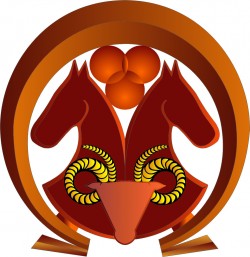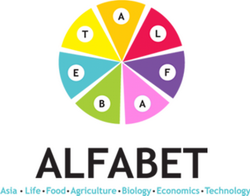Invitation for ALFABET – an ERASMUS MUNDUS Action 2 Project
Erasmus Mundus is a cooperation and mobility programme in the field of higher education that aims to enhance the quality of European higher education and to promote dialogue and understanding between people and cultures through cooperation with Third-Countries. In addition, it contributes to the development of human resources and the international cooperation capacity of Higher education institutions in Third Countries by increasing mobility between the European Union and these countries. Details about projects: http://eacea.ec.europa.eu/erasmus_mundus/results_compendia/selected_projects_action_2_en.php
Objectives
The essential goal of the project is to exchange capacities between Asian and European universities oriented to Life Sciences, Food, Agriculture, Biology, Environment and Technology to respond to the main international challenges addressed to the well-being of the next generations: agriculture, food safety and security, technologies in life sciences, balanced management of the natural resources, sustainable rural development, adaptation to climate change, with a special attention to the contexts of rapid economic growth. The project aims to contribute to increase the relevance, the capacities and efficiency of the higher education (HE) system in Asia by strengthening of the existing network of cooperation among universities in the above mentioned fields.
Activities
The consortium of 9 Asian countries and 7 EU countries guarantees wide dissemination of know-how achieved through mobility in Asia and Europe and the establishment of a strong academic network, active in teaching and research.
Mobility periods are planned as follows respecting the rules of the programme and the budget limitations:
– Bachelor (undergraduate) mobility period of 5 months (one academic semester), 10 months (two academic semesters), 34 months for Target group 3 candidates (not available in the 3rd call – for ac. year 2017/18)
– Master mobility period of 10 months (two academic semesters) and 24 months (full degree which is most often preferred by Asian students) (not available in the 3rd call – for ac. year 2017/18)
– Doctorate mobility period of 10 months (oriented towards practical research) and 36 months (full degree which is very often preferred by Asian students) (not available in the 3rd call – for ac. year 2017/18)
– Post-doctorate mobility period of 6 months (oriented towards practical research)
– Teaching and administrative staff mobility period of 1 month (oriented mainly towards training practises, to establish the plan of further research cooperation between the universities, or to exchange experience in administrative and organisational matters)
The 3rd call for candidates for academic year 2017/2018 is open since mid of October 2016!!!
Deadline for applications to 3rd cohort will be the 6th January 2017!
You can apply here: https://www.alfabet-em.cz/login/
Who can apply?
Target group 1: individuals registered in one of the universities that is a member of the Partnership (see List of the Partners https://www.alfabet-em.cz/project-partners/)
Target group 2: nationals of the third countries concerned by the geographical lot and currently not registered in one of these countries partner universities (Cambodia, China, Indonesia, Laos, Malaysia, Mongolia, Philippines, Thailand, Vietnam)
Target group 3: nationals of the third countries concerned by the geographical lot who are in particularly vulnerable situations: refugees, asylum seekers, indigenous population, unduly excluded for various reasons (racial, ethnic, religious, political, gender or sexual inclination) (Cambodia, China, Indonesia, Laos, Malaysia, Mongolia, Philippines, Thailand, Vietnam)
Exchanges starting in three cohorts:
2016/2017 (mobilities at BSc, MSc, PhD, PostDoc and staff)
2017/2018 (short term mobilities up to 10 months) – call will be open in October 2016












